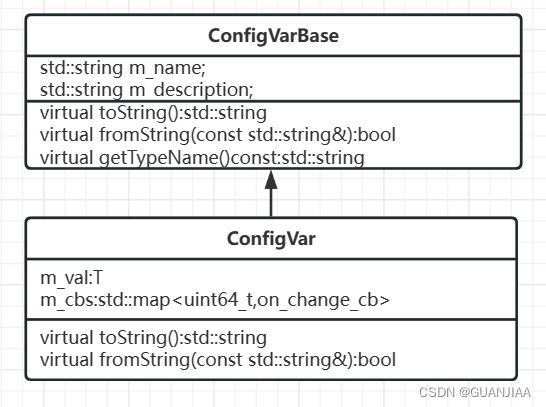- 2022年河南省高等职业教育技能大赛云计算赛项竞赛赛卷(样卷)
忘川_ydy
云计算云计算openstackkubernetesdockerpythonk8sansible
#需要资源(软件包及镜像)或有问题的,可私博主!!!#需要资源(软件包及镜像)或有问题的,可私博主!!!#需要资源(软件包及镜像)或有问题的,可私博主!!!第一部分:私有云任务1私有云服务搭建(10分)使用提供的用户名密码,登录竞赛用的云计算平台,按要求自行使用镜像创建两台云主机,创建完云主机后确保网络正常通信,然后按要求配置服务器。根据提供安装脚本框架,补充脚本完成OpenStack平台的安装搭
- 浪潮 M5系列服务器IPMI无法监控存储RAID卡问题.
Songxwn
硬件服务器服务器运维
简介浪潮的M5代服务器,可能有WebBMC无法查看存储RAID/SAS卡状态的情况,可以通过以下方式修改。修改完成后重启BMC即可生效。ESXiIPMITools使用:https://songxwn.com/ESXi8_IPMI/(Linux也可以直接使用)Linux/ESXiIPMITool下载:https://songxwn.com/file/ipmitoolWindows下载:https:/
- 华为OD机试 - 单向链表中间节点(Java & JS & Python & C & C++)
华为OD题库
华为od链表java
须知哈喽,本题库完全免费,收费是为了防止被爬,大家订阅专栏后可以私信联系退款。感谢支持文章目录须知题目描述输出描述解析代码题目描述给定一个单链表L,请编写程序输出L中间结点保存的数据。如果有两个中间结点,则输出第二个中间结点保存的数据。例如:给定L为1→7→5,则输出应该为7;给定L为1→2→3→4,则输出应该为3;输入描述每个输入包含1个测试用例。每个测试用例:第一行给出链表首结点的地址、结点总
- c++中如何判断变量的数据类型,并输出
xnrbjy
c++开发语言
C++中如果想要判断变量的数据类型,可以使用typeid运算符。该运算符返回一个std::type_info类型的对象,可以使用name()方法获取其名称从而确定变量的类型,例如:#include#includeusingnamespacestd;intmain(){inta=123;floatb=3.14;boolc=true;chard='A';stringe="HelloWorld";cou
- C++学习笔记(lambda函数)
__TAT__
C&C++c++学习笔记
C++learningnote1、lambda函数的语法2、lambda函数的几种用法1、lambda函数的语法lambda函数的一般语法如下:[capture_clause](parameters)->return_type{function_body}capture_clause:需要捕获的变量,但要求该变量必须在这个作用域中。通常的捕获方式有以下几种:[]:不捕获任何变量[&]:按引用捕获变
- 3、JavaWeb-Ajax/Axios-前端工程化-Element
所谓远行Misnearch
#JavaWeb前端ajaxelementuijava前端框架
P34Ajax介绍Ajax:AsynchroousJavaScriptAndXML,异步的JS和XMLJS网页动作,XML一种标记语言,存储数据,作用:数据交换:通过Ajax给服务器发送请求,并获取服务器响应的数据异步交互:在不重新加载整个页面的情况下,与服务器交换数据并实现更新部分网页的技术,例如:搜索联想、用户名是否可用的校验等等。同步与异步:同步:服务器在处理中客户端要处于等待状态,输入域名
- docker怎么端口映射
Lance_mu
docker容器运维
1、默认固定的端口#Web服务器:WebApache或Nginx通常使用80端口HTTP:80HTTPS:443#数据库服务器MySQL:3306PostgreSQL:5432MongoDB:27017Redis:6379#邮件服务器SMTP:25POP3:110IMAP:143#其他服务SSH:22FTP:21DNS(域名解析):53代理服务器Squid:3128版本控制系统Git:9418(S
- 新注册的阿里云账号有哪些优惠?阿里云新用户必看优惠大合集
阿里云最新优惠和活动汇总
很多用户看到阿里云各种活动中的云服务器、云数据库、企业邮箱等云产品都仅限新用户购买之后,都纷纷直接注册了阿里云新账号之后购买,其实,阿里云新用户不仅可以优惠购买活动中的各种云产品,还有很多优惠,下面是“阿里云最新优惠和活动汇总”整理汇总的阿里云新用户必看优惠大合集。新注册的阿里云账号在购买活动中的云产品之前,还有免费领云产品通用代金券、抽取无门槛代金券、免费试用云服务器和正式购买云服务器等阿里云产
- C++ pdf 打印 插入图片
灿烂李
java前端服务器
一:使用PODOFO给PDF插入图片:#includeintmain(){PoDoFo::PdfMemDocumentpdfDocument;PoDoFo::PdfPage*page;PoDoFo::PdfImageimage;PoDoFo::PdfVecObjects*vec_objects;PoDoFo::PdfRectrect;//打开PDF文档pdfDocument.loadFromFil
- webpack.prod.js(webpack生产环境配置文件)
门板_
webpackjavascript前端
生产环境:只打包不运行本地服务器对于在config目录下的webpack.prod.js1.在根目录下运行npxwebpack--config./config/webpack.prod.js2.在package.json文件中配置"build":"npxwebpack--config./config/webpack.prod.js"constpath=require('path')constESL
- Qlib-Server部署
宋志辉
flaskpythonqlib量化
Qlib-Server部署介绍构建Qlib服务器,用户可以选择:一键部署Qlib服务器逐步部署Qlib服务器一键部署Qlib服务器支持一键部署,用户可以选择以下两种方法之一进行一键部署:使用docker-compose部署在Azure中部署使用docker-compose进行一键部署按照以下步骤使用docker-compose部署Qlib服务器:安装docker,请参考Docker安装。安装doc
- Nginx服务
老伙子53
nginx运维
Nginx服务一、什么是Nginx1、概念Nginx是一个高性能的开源的HTTP和反向代理服务器,以及邮件(IMAP/POP3)代理服务器。它最初由IgorSysoev创建,并于2004年首次公开发布。Nginx的主要特点包括高性能、低内存占用、高并发处理能力以及高度的可靠性。2、特点高性能Nginx被设计成高性能的服务器软件,能够处理大量并发连接和高流量的请求。它采用了事件驱动的架构,使用异步I
- 《外观模式(极简c++)》
Bovinitwo
设计模式(极简c++版)c++开发语言
本文章属于专栏-概述-《设计模式(极简c++版)》-CSDN博客模式说明方案:外观模式提供了一个统一的接口,简化了一组复杂子系统的访问方式。优点:将客户端与子系统解耦,降低了复杂性。提高了代码的灵活性和可维护性。缺点:可能导致外观类过于庞大,承担了过多的责任。增加了系统的抽象层,有时会影响性能。本质思想:外观模式的本质思想是为一组复杂的子系统提供一个简单的接口,隐藏其复杂性,使得客户端可以更轻松地
- centos7 安装influxdb+telegraf+grafana 监控服务器
吕吕-lvlv
grafana服务器运维
influxdbinfluxdb是一个时间序列数据库,所有数据记录都会打上时间戳,适合存储数字类型的内容telegraftelegraf可以用于收集系统和服务的统计数据并发送到influxdbgrafanagrafana是一个界面非常漂亮,可直接读取influxdb数据展示成各种图表的开源可视化web软件安装并启动influxdb数据库vim/etc/yum.repos.d/influxdb.re
- 使用Github+PicGo搭建个人图床
水煮养乐多
写在开头每个人都需要一个自己的个人图床,什么是图床?图床就是把图片存到服务器上,通过一个公开的链接地址进行访问或者下载平时我们将图片夹杂在文章、文档、公众号、博客当中,一般情况下这样似乎没有任何问题,可试想一下若我们需要同时维护多份,不停地在不同渠道重复上传、编辑,图片也会散落各地,难以维护管理,这时候若有个统一的存储地方就可以很轻松维护。我们将图片直接放到在线静态页面当中的话,在访问时需要等待全
- 阿里云新用户优惠券,购买云服务器券后价格286.72元1年起
阿里云最新优惠和活动汇总
阿里云推出新用户优惠券啦,阿里云官网已实名认证的注册会员用户可领取总额2215元优惠券,同一用户有一次领券机会,用户在活动页面点击“领取”可以一次性获得所有档位优惠券。优惠券发放至用户登录账号,可登录阿里云控制台,页面顶端进入费用,选择卡券管理-优惠券管理进行查询。满减券档位分类如下:①.云服务器订单满300减20元;②.云服务器订单满500减35元;③.云服务器订单满800减60元;④.云服务器
- 了解什么是Docker
黑风风
DevOps学习dockereureka容器
了解什么是DockerDocker是一个开源的容器化平台,它使得开发者可以将应用程序及其依赖项打包到一个轻量级的、可移植的容器中。这些容器可以在任何支持Docker的系统上运行,确保了应用程序在不同环境之间的一致性和可移植性。,同时享受隔离性和轻量级的优势。Docker的核心组件Docker引擎Docker引擎是一个客户端-服务器应用程序,包括一个长期运行的守护进程(dockerd)、一个REST
- OpenCV(一个C++人工智能领域重要开源基础库) 简介
愚梦者
OpenCV人工智能人工智能opencvc++图像处理计算机视觉开源
返回:OpenCV系列文章目录(持续更新中......)上一篇:OpenCV4.9.0配置选项参考下一篇:OpenCV4.9.0开源计算机视觉库安装概述引言:OpenCV(全称OpenSourceComputerVisionLibrary)是一个基于开放源代码发行的跨平台计算机视觉库,可以用来进行图像处理、计算机视觉和机器学习等领域的开发。该库由英特尔公司于1999年开始开发,最初是为了加速处理器
- 动态多态的注意事项
Austin_1024
动态多态静态多态虚函数子类重写父类虚函数实现动态多态
大家好:衷心希望各位点赞。您的问题请留在评论区,我会及时回答。多态的基本概念多态是C++面向对象三大特性之一(多态、继承、封装)多态分为两类:静态多态:函数重载和运算符重载属于静态多态,复用函数名。动态多态:通过派生类和虚函数实现运行时多态。静态多态和动态多态的区别:静态多态的函数地址早绑定——编译阶段确定函数地址。动态多态的函数地址晚绑定——运行阶段确定函数地址。下面通过案例讲解多态:#incl
- C/C++中的Static关键字
SuhyOvO
C语言C++c语言c++
Static关键字在C和C++编程中是不可或缺的一部分,它用于定义具有持久存储期的变量和函数,以及类的静态成员。虽然它的使用相对直接,但不恰当的使用可能会导致难以调试的错误和混淆。本文将探讨static关键字的概念、作用以及在C和C++中的具体应用。文章目录第一部分:深入理解Static关键字定义和基本概念在C和C++中static的基本作用第二部分:Static在C语言中的使用静态全局变量静态局
- C++进阶学习(3)类类型转换
一只特立独行猪
C++的学习c++学习
文章目录一、类类型转换1.构造函数构造2.类型转换函数一、类类型转换数据类型转换在程序编译时或在程序运行实现基本类型←→基本类型基本类型←→类类型类类型←→类类型类对象的类型转换可由两种方式说明:构造函数转换函数称为用户定义的类型转换或类类型转换,有隐式调用和显式调用方式1.构造函数构造当类ClassX具有以下形式的构造函数:说明了一种从参数arg的类型到该类类型的转换ClassX::ClassX
- C++ 如何去认识模板
SuhyOvO
C++c++开发语言
引言:C++模板是泛型编程的基石,允许程序员定义可与任何数据类型协作的函数和类。这种机制极大地增加了代码的灵活性和复用性,是C++最强大的特性之一。本文将深入探讨C++模板的概念、优势以及使用方法,帮助读者掌握这一重要的编程工具。文章目录模板简介模板的优势一、模板基础1.1模板的概念1.2函数模板1.3类模板二、模板进阶2.1模板的实例化2.2模板的特化2.3模板的默认参数2.4模板的嵌套三、模板
- Netty服务器结合WebSocke协议监听和接收数据
beiback
服务器问题Java服务器运维netty
目录1.pom依赖2.配置属性3.创建netty服务器4.建立监听和响应5.创建启动器6.前端static下页面7.前端js8.注意异常问题9.创建netty服务器--使用守护线程1.pom依赖io.nettynetty-all4.1.86.Final2.配置属性application.properties#启动端口server.port=8088server.servlet.context-pa
- C++面试题
虾仁A
面试c++
目录一、堆和栈的区别二、C++中new、delte和malloc的区别三、什么是源对象四、C++有哪些设计模式五,你使用过C++哪些类型的指针一、堆和栈的区别特性堆栈申请方式由程序员显式申请和释放由系统自动分配和释放分配方式动态分配自动分配分配效率相对较慢,需要遍历内存链表寻找合适空间相对较快,系统直接分配内存地址不连续的内存区域连续的内存区域大小限制大小灵活,上限取决于虚拟内存大小固定,通常较小
- 15届蓝桥杯备赛(3)
sad_liu
#sad_liu的刷题记录蓝桥杯职场和发展
文章目录15届蓝桥杯备赛(3)回溯算法组合组合总和III电话号码的字母组合组合总和组合总和II分割回文串子集子集II非递减子序列全排列全排列II贪心算法分发饼干最大子数组和买股票的最佳时机II跳跃游戏15届蓝桥杯备赛(3)提高C++程序的输入输出效率,尤其是在需要大量输入输出操作时。ios_base::sync_with_stdio(false);cin.tie(nullptr);cout.tie
- Elasticsearch8 - Docker安装Elasticsearch8.12.2
王谷雨_
ElasticSearchelasticsearchdocker
前言最近在学习ES,所以需要在服务器上装一个单节点的ES服务器环境:centos7.9安装下载镜像目前最新版本是8.12.2dockerpulldocker.elastic.co/elasticsearch/elasticsearch:8.12.2创建配置新增配置文件elasticsearch.ymlhttp.host:0.0.0.0http.cors.enabled:truehttp.cors.
- C++ primer 第十二章
红鼻子怡宝
c++primerc++开发语言
动态分配的对象的生存期与它们在哪里创建无关,只有当显式地被释放时,这些对象才会销毁。静态内存用来保存局部static对象、类static数据成员以及定义在任何函数之外的变量。栈内存用来保存定义在函数内的非static对象。堆内存用来存储动态分配的对象。静态或栈内存中的对象由编译器自动创建和销毁,而堆内存中的对象必须显式地销毁它们。1.动态内存与智能指针运算符new在动态内存中为对象分配空间并返回一
- 5. C++ 局部静态变量在什么时候分配内存和初始化?
九五一
C++知识c++javajvm开发语言数据结构
C++局部静态变量在什么时候分配内存和初始化?对于C语言的全局和静态变量,不管是否被初始化,其内存空间都是全局的;如果初始化,那么初始化发生在任何代码执行之前,属于编译期初始化。由于内置变量无须资源释放操作,仅需要回收内存空间,因此程序结束后全局内存空间被一起回收,不存在变量依赖问题,没有任何代码会再被执行!C++引入了对象,这给全局变量的管理带领新的麻烦。C++的对象必须有构造函数生成,并最终执
- 使用Spring Security进行LDAP(轻量目录访问协议)认证
岚珂瓜呱
springbootspringjava数据库后端开发语言springboot
使用SpringSecurity进行LDAP(轻量目录访问协议)认证使用SpringSecurity进行LDAP认证非常简单,您只需配置SpringSecurity以连接到LDAP服务器并执行认证即可。以下是一个简单的示例,演示如何在SpringBoot应用程序中实现LDAP认证:添加SpringSecurity和SpringLDAP依赖:首先,您需要添加SpringSecurity和Spring
- win7休眠、待机api
WarmSword
Windowsapiwindows休眠待机关机
win7休眠、待机api通过c++让windows进入休眠或者待机状态。xp、win7下用SetSystemPowerState函数,vista及之后的版本使用SetSuspendState函数。xp、win7:SetSystemPowerStateBOOLWINAPISetSystemPowerState(_In_BOOLfSuspend,_In_BOOLfForce);ParametersfS
- 关于旗正规则引擎下载页面需要弹窗保存到本地目录的问题
何必如此
jsp超链接文件下载窗口
生成下载页面是需要选择“录入提交页面”,生成之后默认的下载页面<a>标签超链接为:<a href="<%=root_stimage%>stimage/image.jsp?filename=<%=strfile234%>&attachname=<%=java.net.URLEncoder.encode(file234filesourc
- 【Spark九十八】Standalone Cluster Mode下的资源调度源代码分析
bit1129
cluster
在分析源代码之前,首先对Standalone Cluster Mode的资源调度有一个基本的认识:
首先,运行一个Application需要Driver进程和一组Executor进程。在Standalone Cluster Mode下,Driver和Executor都是在Master的监护下给Worker发消息创建(Driver进程和Executor进程都需要分配内存和CPU,这就需要Maste
- linux上独立安装部署spark
daizj
linux安装spark1.4部署
下面讲一下linux上安装spark,以 Standalone Mode 安装
1)首先安装JDK
下载JDK:jdk-7u79-linux-x64.tar.gz ,版本是1.7以上都行,解压 tar -zxvf jdk-7u79-linux-x64.tar.gz
然后配置 ~/.bashrc&nb
- Java 字节码之解析一
周凡杨
java字节码javap
一: Java 字节代码的组织形式
类文件 {
OxCAFEBABE ,小版本号,大版本号,常量池大小,常量池数组,访问控制标记,当前类信息,父类信息,实现的接口个数,实现的接口信息数组,域个数,域信息数组,方法个数,方法信息数组,属性个数,属性信息数组
}
&nbs
- java各种小工具代码
g21121
java
1.数组转换成List
import java.util.Arrays;
Arrays.asList(Object[] obj); 2.判断一个String型是否有值
import org.springframework.util.StringUtils;
if (StringUtils.hasText(str)) 3.判断一个List是否有值
import org.spring
- 加快FineReport报表设计的几个心得体会
老A不折腾
finereport
一、从远程服务器大批量取数进行表样设计时,最好按“列顺序”取一个“空的SQL语句”,这样可提高设计速度。否则每次设计时模板均要从远程读取数据,速度相当慢!!
二、找一个富文本编辑软件(如NOTEPAD+)编辑SQL语句,这样会很好地检查语法。有时候带参数较多检查语法复杂时,结合FineReport中生成的日志,再找一个第三方数据库访问软件(如PL/SQL)进行数据检索,可以很快定位语法错误。
- mysql linux启动与停止
墙头上一根草
如何启动/停止/重启MySQL一、启动方式1、使用 service 启动:service mysqld start2、使用 mysqld 脚本启动:/etc/inint.d/mysqld start3、使用 safe_mysqld 启动:safe_mysqld&二、停止1、使用 service 启动:service mysqld stop2、使用 mysqld 脚本启动:/etc/inin
- Spring中事务管理浅谈
aijuans
spring事务管理
Spring中事务管理浅谈
By Tony Jiang@2012-1-20 Spring中对事务的声明式管理
拿一个XML举例
[html]
view plain
copy
print
?
<?xml version="1.0" encoding="UTF-8"?>&nb
- php中隐形字符65279(utf-8的BOM头)问题
alxw4616
php中隐形字符65279(utf-8的BOM头)问题
今天遇到一个问题. php输出JSON 前端在解析时发生问题:parsererror.
调试:
1.仔细对比字符串发现字符串拼写正确.怀疑是 非打印字符的问题.
2.逐一将字符串还原为unicode编码. 发现在字符串头的位置出现了一个 65279的非打印字符.
- 调用对象是否需要传递对象(初学者一定要注意这个问题)
百合不是茶
对象的传递与调用技巧
类和对象的简单的复习,在做项目的过程中有时候不知道怎样来调用类创建的对象,简单的几个类可以看清楚,一般在项目中创建十几个类往往就不知道怎么来看
为了以后能够看清楚,现在来回顾一下类和对象的创建,对象的调用和传递(前面写过一篇)
类和对象的基础概念:
JAVA中万事万物都是类 类有字段(属性),方法,嵌套类和嵌套接
- JDK1.5 AtomicLong实例
bijian1013
javathreadjava多线程AtomicLong
JDK1.5 AtomicLong实例
类 AtomicLong
可以用原子方式更新的 long 值。有关原子变量属性的描述,请参阅 java.util.concurrent.atomic 包规范。AtomicLong 可用在应用程序中(如以原子方式增加的序列号),并且不能用于替换 Long。但是,此类确实扩展了 Number,允许那些处理基于数字类的工具和实用工具进行统一访问。
- 自定义的RPC的Java实现
bijian1013
javarpc
网上看到纯java实现的RPC,很不错。
RPC的全名Remote Process Call,即远程过程调用。使用RPC,可以像使用本地的程序一样使用远程服务器上的程序。下面是一个简单的RPC 调用实例,从中可以看到RPC如何
- 【RPC框架Hessian一】Hessian RPC Hello World
bit1129
Hello world
什么是Hessian
The Hessian binary web service protocol makes web services usable without requiring a large framework, and without learning yet another alphabet soup of protocols. Because it is a binary p
- 【Spark九十五】Spark Shell操作Spark SQL
bit1129
shell
在Spark Shell上,通过创建HiveContext可以直接进行Hive操作
1. 操作Hive中已存在的表
[hadoop@hadoop bin]$ ./spark-shell
Spark assembly has been built with Hive, including Datanucleus jars on classpath
Welcom
- F5 往header加入客户端的ip
ronin47
when HTTP_RESPONSE {if {[HTTP::is_redirect]}{ HTTP::header replace Location [string map {:port/ /} [HTTP::header value Location]]HTTP::header replace Lo
- java-61-在数组中,数字减去它右边(注意是右边)的数字得到一个数对之差. 求所有数对之差的最大值。例如在数组{2, 4, 1, 16, 7, 5,
bylijinnan
java
思路来自:
http://zhedahht.blog.163.com/blog/static/2541117420116135376632/
写了个java版的
public class GreatestLeftRightDiff {
/**
* Q61.在数组中,数字减去它右边(注意是右边)的数字得到一个数对之差。
* 求所有数对之差的最大值。例如在数组
- mongoDB 索引
开窍的石头
mongoDB索引
在这一节中我们讲讲在mongo中如何创建索引
得到当前查询的索引信息
db.user.find(_id:12).explain();
cursor: basicCoursor 指的是没有索引
&
- [硬件和系统]迎峰度夏
comsci
系统
从这几天的气温来看,今年夏天的高温天气可能会维持在一个比较长的时间内
所以,从现在开始准备渡过炎热的夏天。。。。
每间房屋要有一个落地电风扇,一个空调(空调的功率和房间的面积有密切的关系)
坐的,躺的地方要有凉垫,床上要有凉席
电脑的机箱
- 基于ThinkPHP开发的公司官网
cuiyadll
行业系统
后端基于ThinkPHP,前端基于jQuery和BootstrapCo.MZ 企业系统
轻量级企业网站管理系统
运行环境:PHP5.3+, MySQL5.0
系统预览
系统下载:http://www.tecmz.com
预览地址:http://co.tecmz.com
各种设备自适应
响应式的网站设计能够对用户产生友好度,并且对于
- Transaction and redelivery in JMS (JMS的事务和失败消息重发机制)
darrenzhu
jms事务承认MQacknowledge
JMS Message Delivery Reliability and Acknowledgement Patterns
http://wso2.com/library/articles/2013/01/jms-message-delivery-reliability-acknowledgement-patterns/
Transaction and redelivery in
- Centos添加硬盘完全教程
dcj3sjt126com
linuxcentoshardware
Linux的硬盘识别:
sda 表示第1块SCSI硬盘
hda 表示第1块IDE硬盘
scd0 表示第1个USB光驱
一般使用“fdisk -l”命
- yii2 restful web服务路由
dcj3sjt126com
PHPyii2
路由
随着资源和控制器类准备,您可以使用URL如 http://localhost/index.php?r=user/create访问资源,类似于你可以用正常的Web应用程序做法。
在实践中,你通常要用美观的URL并采取有优势的HTTP动词。 例如,请求POST /users意味着访问user/create动作。 这可以很容易地通过配置urlManager应用程序组件来完成 如下所示
- MongoDB查询(4)——游标和分页[八]
eksliang
mongodbMongoDB游标MongoDB深分页
转载请出自出处:http://eksliang.iteye.com/blog/2177567 一、游标
数据库使用游标返回find的执行结果。客户端对游标的实现通常能够对最终结果进行有效控制,从shell中定义一个游标非常简单,就是将查询结果分配给一个变量(用var声明的变量就是局部变量),便创建了一个游标,如下所示:
> var
- Activity的四种启动模式和onNewIntent()
gundumw100
android
Android中Activity启动模式详解
在Android中每个界面都是一个Activity,切换界面操作其实是多个不同Activity之间的实例化操作。在Android中Activity的启动模式决定了Activity的启动运行方式。
Android总Activity的启动模式分为四种:
Activity启动模式设置:
<acti
- 攻城狮送女友的CSS3生日蛋糕
ini
htmlWebhtml5csscss3
在线预览:http://keleyi.com/keleyi/phtml/html5/29.htm
代码如下:
<!DOCTYPE html>
<html>
<head>
<meta charset="UTF-8">
<title>攻城狮送女友的CSS3生日蛋糕-柯乐义<
- 读源码学Servlet(1)GenericServlet 源码分析
jzinfo
tomcatWebservlet网络应用网络协议
Servlet API的核心就是javax.servlet.Servlet接口,所有的Servlet 类(抽象的或者自己写的)都必须实现这个接口。在Servlet接口中定义了5个方法,其中有3个方法是由Servlet 容器在Servlet的生命周期的不同阶段来调用的特定方法。
先看javax.servlet.servlet接口源码:
package
- JAVA进阶:VO(DTO)与PO(DAO)之间的转换
snoopy7713
javaVOHibernatepo
PO即 Persistence Object VO即 Value Object
VO和PO的主要区别在于: VO是独立的Java Object。 PO是由Hibernate纳入其实体容器(Entity Map)的对象,它代表了与数据库中某条记录对应的Hibernate实体,PO的变化在事务提交时将反应到实际数据库中。
实际上,这个VO被用作Data Transfer
- mongodb group by date 聚合查询日期 统计每天数据(信息量)
qiaolevip
每天进步一点点学习永无止境mongodb纵观千象
/* 1 */
{
"_id" : ObjectId("557ac1e2153c43c320393d9d"),
"msgType" : "text",
"sendTime" : ISODate("2015-06-12T11:26:26.000Z")
- java之18天 常用的类(一)
Luob.
MathDateSystemRuntimeRundom
System类
import java.util.Properties;
/**
* System:
* out:标准输出,默认是控制台
* in:标准输入,默认是键盘
*
* 描述系统的一些信息
* 获取系统的属性信息:Properties getProperties();
*
*
*
*/
public class Sy
- maven
wuai
maven
1、安装maven:解压缩、添加M2_HOME、添加环境变量path
2、创建maven_home文件夹,创建项目mvn_ch01,在其下面建立src、pom.xml,在src下面简历main、test、main下面建立java文件夹
3、编写类,在java文件夹下面依照类的包逐层创建文件夹,将此类放入最后一级文件夹
4、进入mvn_ch01
4.1、mvn compile ,执行后会在
